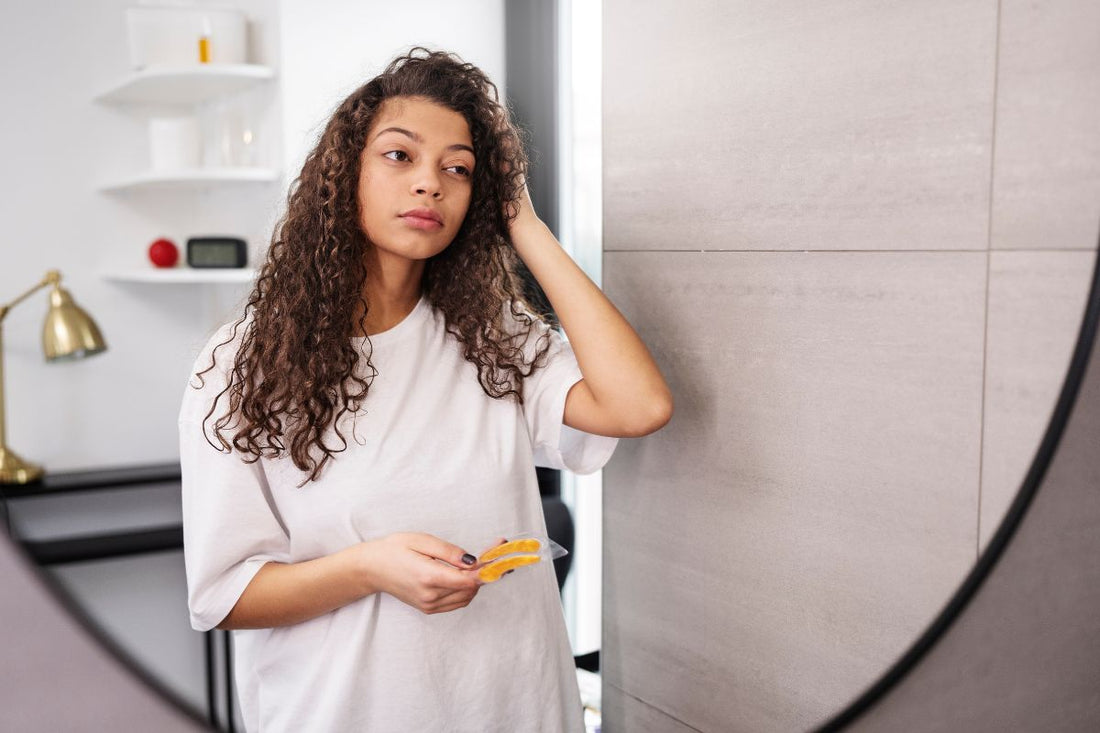
What Do Hair Conditioners Do? A Complete Guide
Share
Healthy, shiny, and soft hair is something everyone wants. Shampoo cleans well, but it often leaves hair feeling rough and tangled. This is where a hair conditioner becomes essential. Many people ask: what do hair conditioners do? The answer is simple – they restore moisture, smooth the cuticle, and make your hair look and feel healthy.
In this guide, you’ll learn everything about conditioners how they work, their types, benefits, how to use them, mistakes to avoid, and how to choose the right one for your hair type.
What Do Hair Conditioners Do?
A hair conditioner is a product designed to make hair soft, smooth, and manageable after shampooing. While shampoo cleans the scalp and hair by removing dirt and oil, it also strips away natural moisture. Conditioner helps to restore that lost hydration and protect the hair from dryness, frizz, and damage.
How Conditioners Work
-
Hair is covered by tiny scales called cuticles.
-
Shampoo opens the cuticles to remove dirt.
-
Conditioner smooths the cuticles back down, sealing moisture inside.
- This results in shiny, soft, and tangle-free hair.
Types of Hair Conditioners
There are different types of conditioners for different needs.
|
Type |
Use |
Best For |
|
Rinse-Out Conditioner |
Applied after shampoo and rinsed in a few minutes |
Daily hair care for all types |
|
Leave-In Conditioner |
Applied and left in hair, no rinse needed |
Frizz control, styling, extra hydration |
|
Deep Conditioner / Hair Mask |
Left for 15–30 minutes for deep repair |
Damaged, dry, or chemically treated hair |
Choosing the right type of conditioner makes a big difference in results.
Key Benefits of Using a Hair Conditioner
Using conditioner regularly provides multiple benefits for every hair type.
-
Hydration and Moisture: keeps hair nourished and prevents dryness after shampooing.
-
Smoothness: makes hair silky, soft, and pleasant to touch.
-
Easier Detangling: reduces knots and breakage while combing or brushing.
-
Frizz Control: tames flyaways and keeps hair looking neat and shiny.
-
Protection: helps defend hair from everyday damage caused by heat, pollution, and styling tools.
-
Improved Appearance: adds natural shine, bounce, and overall healthier look.
-
Stronger Hair: some conditioners contain proteins that repair weak or damaged strands.
-
Color Protection: color-safe formulas help maintain vibrant hair color for longer.
If you want the best hair conditioner, pick one that matches your hair type and needs. For example, the best hair conditioner for men often focuses on strength and freshness, while a hair conditioner for women may focus more on shine, smoothness, or color care.
How to Use Conditioner the Right Way
Using conditioner correctly is just as important as choosing the right product.
Step-by-Step Guide:
-
Shampoo First: Always wash hair before applying conditioner.
-
Apply to Lengths & Ends: Avoid the scalp unless it’s a scalp-specific conditioner.
-
Leave for 2–5 Minutes: Let the conditioner work into your strands.
-
Rinse Thoroughly: Use cold or lukewarm water for best results.
Conditioner Frequency
|
Hair Type |
Conditioner Use |
|
Dry or Damaged Hair |
Every wash (3–4 times a week) |
|
Oily Hair |
2–3 times per week |
|
Curly or Frizzy Hair |
Every wash |
|
Normal Hair |
2–3 times per week |
Hair Mask vs Conditioner – Which Do You Need?
A hair mask and a conditioner are both important, but they work differently.
|
Feature |
Hair Mask |
Conditioner |
|
Purpose |
Deep repair & nourishment |
Daily softness & protection |
|
Application Time |
15–30 minutes |
2–5 minutes |
|
Frequency |
1–2 times a week |
After every shampoo |
For best results, use both: apply a hair mask once a week, then seal with a conditioner.
Common Mistakes to Avoid While Using Conditioner
-
Using Too Much Product: A large amount doesn’t mean better results. Overuse can make hair greasy, heavy, and lifeless. Use only a coin-sized amount for short hair and a little more for long hair.
-
Applying on the Scalp: Most conditioners are made for the hair strands, not the scalp. Applying directly to the scalp can cause buildup and itchiness, unless it’s a scalp-specific product.
-
Not Rinsing Properly: If conditioner stays in your hair, it leaves residue that makes hair look dull and sticky. Always rinse thoroughly until your hair feels light and clean.
-
Wrong Order: Conditioner should always be applied after shampoo. Shampoo cleanses, while conditioner seals in moisture. Using them in reverse reduces effectiveness.
- Skipping Conditioner: Some people skip it, thinking it makes oily hair worse.The truth is, avoiding conditioner often results in hair that’s frizzier, weaker, and harder to manage. Just choose a lightweight formula if you have oily hair.
DIY Natural Hair Masks You Can Try
For those who prefer natural care, here are simple DIY masks:
-
Banana + Honey Mask: for dry hair, adds softness.
-
Yogurt + Aloe Vera Mask: controls frizz, makes hair smooth.
-
Egg + Olive Oil Mask: strengthens weak, brittle hair.
- Avocado + Coconut Oil Mask: deeply moisturizes for shine.
Use these once a week along with a hair conditioner for best results.
How to Choose the Right Conditioner
When selecting a conditioner, keep these points in mind:
- Hair Type: Choose based on whether your hair is dry, oily, curly, frizzy, or color-treated. Each type needs different care.
- Ingredients: Look for natural oils, keratin, proteins, and vitamins for repair and nourishment. Avoid too many harsh chemicals.
- Lifestyle Needs: If you style often, pick one with heat protection. If using daily, go for a formula that hydrates without weighing hair down.
- Scalp Sensitivity: If you have dandruff or a sensitive scalp, go for mild, scalp-friendly conditioners.
Conclusion
So, what do hair conditioners do? They restore hydration, smooth the cuticle, reduce frizz, and protect your hair from damage. Whether you’re looking for the best hair conditioner, a best hair conditioner for men, or a hair conditioner for women, the right choice can transform your hair care routine.
Make conditioner a regular part of your hair wash, and your hair will thank you with softness, shine, and strength.
